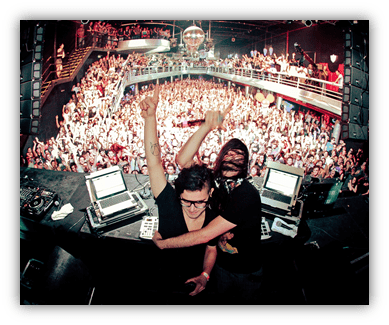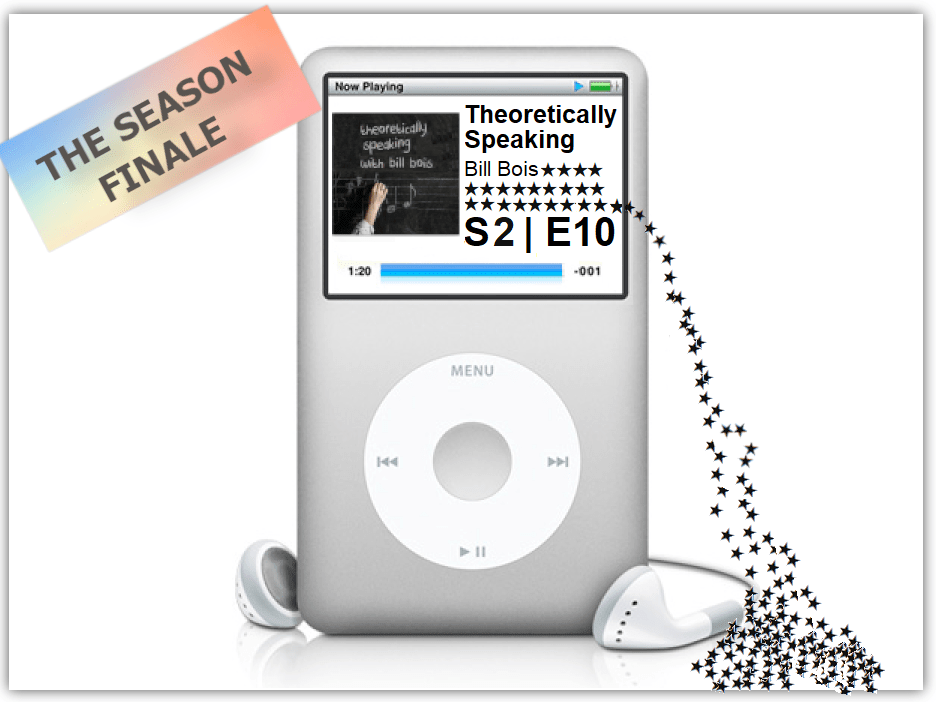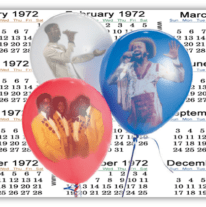Bill Bois’ Music Theory For Non-Musicians™
…if there was ever an art where breaking the rules is one of the rules, it’s music.
redditor u/COMPRIMENS
S2|E10 – What Makes Reggae, Reggae ?
In last week’s article, I followed the path of ska up through today, but I pointed out where ska went one way and the rest of Jamaican music went another.
Let’s pick up there, in the late 1960s.

A lot of people were turned off by ska’s new direction.
It was increasingly, for lack of a better word, gangsta.
Singers bragged about how tough they were and how unfair society was. While it was nothing compared to gangsta rap which would come later, it reflected the lawlessness of Kingston. This made enough people uncomfortable that a different genre evolved.
It was called rocksteady and was influenced by The Impressions, Dionne Warwick, The Supremes and other American soul singers. It focused on romantic lyrics, vocal harmonies, and a slower tempo, but it kept ska’s distinctive emphasis on the off beats. 1 and 2 and 3 and 4 and.
As a movement, rocksteady lasted less than two years. As much as people wanted to ignore social problems, it was impossible. There had to be music that represented the lower classes’ majority view that most people are good and deserve to be treated fairly.
So along came reggae.
Reggae took the slowed down tempo of rocksteady, maybe slowed it down a little more, and added a little more rhythm in the guitars and keyboards. It has fewer, if any, horns. The vocals provide the melody and the bass guitar supplies the riff or counter melody.
If you’d like to hear the differences between ska, rocksteady, and reggae, here’s a video of guitarist Billy DeCristofano demonstrating each.
Lyrically, reggae described the lives of the lower classes, their financial and political struggles, and their hopes for better lives. Reggae love songs weren’t just romantic, they expressed love for humanity and the universe.
On that note, we can’t talk about the transition to reggae without mentioning Rastafarianism.
Rastafari is a Jamaican religion that began in the 1930s, in part as a reaction to oppression and exploitation.
Though many countries in the Americas had slavery, Jamaica had more slave rebellions than any other. Rastafari was a peaceful continuation of those rebellions. It opposes injustice.

All black Jamaicans knew they weren’t natives, and that their ancestors were brought there against their will and forced to work.
Living under England’s colonial rule meant they had to adopt British traditions. Many aspects of their African culture were being forgotten.
Also in the 1930s, Marcus Garvey started the Universal Negro Improvement Association and African Communities League, the first pan-African organization addressing the harm caused by colonialism. He predicted an African king would liberate black people globally.
Some Rastas took this to mean that Haile Sallasse’s coronation as king of Ethiopia in 1930 made him a prophet or even the second coming of Christ.

A Rastafarian community was started on a mountain top away from Kingston.
They called it Pinnacle and tried to rebuild African culture there. Jamaica’s government saw them as a threat to their authority. It broke up Pinnacle and jailed its leaders.
Many of these displaced Rastas moved back to Kingston but were thought of vagrants and criminals. They wore their hair in dreadlocks, which made it easy for the haters to pick them out, however, they got involved in the music community and helped develop the spiritual side of reggae.
I mentioned Chris Blackwell in the last installment. His family was wealthy, white, and English, though they lived in Jamaica for many years. When he was 21, he and some friends were boating and ran out of gas. They managed to make it to shore but were at a remote part of the island. He set out on foot in search of fresh water as they were getting dehydrated.
The first person he eventually found was a Rasta.
“I’d never come across one before.
At the time, Rastafarians were considered to be a very dangerous group of people. I was scared.
But he brought me water. And I thought ‘here’s this guy who represents what everybody says are terrible people and he’s saving me.’
It changed my life.”
CHRIS BLACKWELL
Raised on classical music, he began going to sound system dances with the locals and gained an appreciation for ska. With his skill for promotion and his family’s money, he selected singers and songs he liked, recorded them, and got them airplay on Jamaican stations. The first three singles went to #1. People were excited hearing Jamaican music on the radio, instead of American or British acts.
Blackwell left Jamaica when it gained its independence from the United Kingdom in 1962. As an Englishman, he didn’t want to be seen as being on “the wrong side of history.”
Once back in England, he started Island Records. He was just in time for the explosion of British blues and rock bands, but he always kept an ear open for new Jamaican musicians and signed many of them, including Bob Marley.

But not until 1972. In the late 60s, Marley was still in The Wailers. They had several ska hits, like Simmer Down, which hit #1 in Jamaica and sold 70,000 copies. As the band’s popularity grew, Marley became the de facto front man and then, after going solo, the de facto leader of reggae. He was keen to widen its audience into the US and UK,
Marley also became a Rastafarian and incorporated its message on love, unity, and justice into his music. Songs like Zimbabwe and Africa Unite promoted Marcus Garvey’s idea of bringing together African people everywhere, no matter where history had moved them.
In 1972, a low budget Jamaican film called The Harder They Come starring Jimmy Cliff became a mainstay of midnight movies in American and the UK. Its soundtrack album introduced reggae to most of the outside world. If you want a crash course in reggae, this is the album for you. It includes The Maytals, Desmond Dekker, and The Slickers.

Side note: I remember watching Cher’s variety show with my dad around this time. She introduced a reggae medley saying it was the new hot sound. Afterwards, my dad and I thought it wasn’t that hot. And it wasn’t until I heard “The Harder They Come” soundtrack that I understood it.
Perhaps Cher shouldn’t have been our first taste of reggae.
Island wasn’t the only English label to notice the market of young Jamicans in England. Trojan Records released 2000 singles in 7 years. This music was for people outside the British mainstream and unfortunately skinheads, outsiders that they are, were attracted to it. That gave reggae a bad name and the BBC wouldn’t play it, no matter how popular it was in the nightclubs.
We now call this form “roots reggae” to show that it was the start of other genres. The main changes happened in London, New York, and Kingston.
In London, the rocksteady style of romantic songs never went away like it did in Jamaica. Musicians there mixed rocksteady with the soul coming out of Philadelphia and Chicago to create lovers’ rock.
Lovers’ rock is to reggae as quiet storm is to soul.
It’s romantic lyrically and sonically, and garnered a mostly female audience. It also had many female performers, something not as common in roots reggae. Carroll Thompson became known as the “Queen of Lovers’ Rock” through her songs I’m So Sorry and Hopelessly In Love.

DJ Kool Herc was only 12 when his family moved from Kingston to the Bronx, but he knew about riddims and toasting.
What are they? Jamaican labels often released singles with the main song on the A side and the same song with the vocals removed on the B side. These instrumental versions were known as riddims, or dubs.
The guys running the sound systems, called “selectors” because they selected which songs to play, would play the riddim and talk or shout over them to get the crowd excited. This is called toasting.
In his late teens, Kool Herc built his own sound system and held a party to raise money for his younger sister to buy clothes for the new school year. It was a success and he held more parties.
His sound system and toasting put him at ground zero of hip hop’s creation. We’ll talk about him and the Bronx in this series when we get to hip hop.
It’s not surprising that different toasters used the same riddims. Here are three songs with the same backing track.
Diseases – Michigan & Smiley
Let Go Mi Hand – The Outlaw Josey Wales
Zungguzungguguzungguzeng – Yellowman
New technology allowed the “remixing” of existing records. You could make your own.
This technique is called dubbing and the genre of reworking tracks is called dub. And yes, that’s where the name of dubstep comes from.
The “step” part of dubstep is 2 step garage, an electronic dance genre that uses a wobbly bass line.

The biggest names in dubstep are Skrillex and Bassnectar, but the genre seems to have slipped in popularity over the past few years.
It’s splintered into a couple dozen subgenres like EDM trap, glitch, and chillstep.
Dub and dancehall was initially looked down on by the upper classes, who were still listening to roots reggae and rocksteady. These people looked at dancehall the way some people looked at early rap. How much talent does it take to talk over someone else’s song? Can these people with computers even play instruments?
The critics were, of course, wrong, and dancehall took over the Jamaican charts.
Shabba Ranks in the 90s, Sean Paul in the 2000s, and Rhianna in the 2010s sold millions of records. At least part of this was due to radio airplay.
Radio was still uncomfortable playing reggae’s messages of rebelling against oppression. Thematically, dancehall lost reggae’s themes of freedom, love and unity in favor of fashion, dancing, sex, and violence. Somehow, radio was OK with random violence, but not with speaking out against authority.
One would need a flowchart to keep track of the wide influence of Jamaican music.
From the mento of the 1950s to first wave ska, to rocksteady and roots reggae, to second and third wave ska, to hip hop, dubstep, and dancehall… modern music owes a lot to a small island and its political connections to the United Kingdom and relative proximity to the United States.
Who knows what great music we’ve missed coming from more isolated countries?
Finally, a bit of housekeeping. I have jury duty starting Monday so we’ll call this the end of Season 2.
I hope you’ve enjoyed it nearly as much as I have.
We’ll pick up with the “What Makes This That” theme after the jury reaches a verdict.
For now, my only verdict:
“Backstabbers” is a 10.“
Suggested Listening:

Simmer Down
– The Wailers
(1964)

Girl I’ve Got A Date
– Alton Ellis
(1966)

Do The Reggay
– The Maytals
(1969)

The Isrealite
– Desmond Decker
(1969)

Always Together
– Bob & Marcia
(1970)

Double Barrel
– Dave and Ansell Collins
(1971)

The Harder They Come
– Jimmy Cliff
(1972)

Skylarking
– Horace Andy
(1972)

Caught You In A Lie
– Louisa Mark
(1975)

Legalize It
– Peter Tosh
(1976)

Vanity
– Sugar Minott
(1978)

Silly Games
– Janet Kay
(1979)

I’m So Sorry
– Carroll Thompson
(1981)

One Love
– Bob Marley
(1984)

Mr. Loverman
– Shabba Ranks featuring Deborahe Glasgow
(1991)

Get Busy
– Sean Paul
(2003)

Scary Monsters and Nice Sprites
– Skrillex
(2010)

Work
– Rhianna featuring Drake
(2015)
(Let the author know that your liked their article with a “Heart Upvote!”)





Out of all the sounds of Jamaica, the one that hits me the hardest is dub reggae. Its production wizardry is just as important for music as Phil Spector’s wall of sound innovations, maybe more so. Props to Lee “Scratch” Perry, King Tubby, ET, Mad Professor, Sly & Robbie, and the other legends of the style. Here’s one of my fave tracks, produced by Perry:
https://www.youtube.com/watch?v=B48NsEfiOdA
Super cool track!
OK, so I haven’t listened to all of the songs, but the one I liked best was “Legalize It”. Surprised me.
I know very little reggae, so this article is great. Late to the party on this song as I see on wikipedia that it’s been sampled a million times, but I saw it on a soap (or something) commercial one time and loved it. Go figure.
Sister Nancy – Bam Bam (1982)
https://www.youtube.com/watch?v=qXnT3LFTc-s
I very nearly included this in the Suggested Listening list. There are so many good songs in all the subgenres that it was hard to whittle it down to just 18. Her song “One, Two” is very cool, too.
Kanye West used this song to thrilling effect in “Famous.”
But beware: it has Kanye being Kanye.
Great stuff as always, V. I LOVED the video at the beginning showing the differences between the 3, and the easy connection between them.
In the early 90s, Cape May had a number of reggae cover bands, and I would visit the beach resort with a number of friends to dance the night away. One of those bands wound up playing at my friend’s wedding in 1994, also in Cape May.
I think I’ve shared this story elsewhere, but when I was in Damascus a couple of friends and I put funds together for a party. It was in a fifth-story rooftop apartment, complete with lighting artists, bartenders, and a cleaning staff after the party was over. The police and landlord were paid off, typical of an event of this stature.
As for us, we didn’t even show up on time, but when I walked in, Bob Marley’s “Could You Be Loved” was on, and the dancefloor packed with about 400 local Syrians singing along. It was one of my favorite moments of all-time, and the moment I realized that people were the same, no matter the race/culture/geography. It’s just politics and religion that screw us up.
That video is extremely helpful. Without it, I would have had to try explaining that we count quarter notes as “1 2 3 4,” and eighth notes as “1 and 2 and 3 and 4,” and sixteenth notes as “1 e and ah 2 e and ah 3 e and ah 4 e and ah.” And then say reggae’s double stroke is sometimes on “1 e and ah 2 e and ah 3 e and ah 4 e and ah” and sometimes elsewhere. It would be more confusing than helpful.
Could you be loved? Then be loved. It’s such a simple message, yet crucial and universal.
Excellent stuff as ever. Bob Marley was like a rite of passage for the teenage music fan, the Songs of Freedom box set came out when I was 16, it had 78 songs spanning his whole career from very first single Judge Not from 1961 to a live version of Redemption Song from his last ever concert. Despite being a box set and out of the usual price range for a jobless teenager me and a number of schoolmates got it. It didn’t matter what your genre of choice was; metal head, indie kid or dance lover, Bob was one thing everyone agreed on.
My understanding is that commercially through the 60s to 80s reggae didn’t do that well in the US whereas over here Bob Marley was a big star and even before him Desmond Dekker, Dave & Ansell Collins had big hits with Jimmy Cliff and Toots and The Maytals following on.
It may not have ended well for Jimmy Cliff in The Harder They Come but he’s one of the coolest looking guys in movie history for me. Saw Jimmy at Glastonbury in a Sunday afternoon legend spot and he was awesome.
Horace Andy’s voice is something to behold, great that Massive Attack picked him up and gave him a new lease of life.
Probably my favourite reggae track is a true one hit wonder; Uptown Top Ranking by Althea & Donna. Recording their own lyrics over a riddim track borrowed from Alton Ellis. Made #1 in the UK in 1977.
https://youtu.be/joh37lrvf-s
Cool! I think my wife had those glasses in the early 80s.
Oh, and that Yellowman track; Zungguzungguguzungguzeng – what a name! Love the idea of going into the record store and asking for ‘Zungunguzzungawunga, no not that, Zinguzzagungzanguzeng, or is it Zzuungungagungazunga? I give up, I’ll take The Thong Song instead.’
Enjoy jury service. Did it back in 2004. It was at the same time one of the dullest things I’ve ever done, a lot of sitting round waiting to be called onto a trial, while also one of the most interesting once a trial started seeing how it all worked and the back and forth between prosecution, defence and judge – not quite as exciting as Hollywood makes out but fascinating. Served on two juries in my two weeks. One guilty, one not guilty. Honours even.
Excellent series, Bill. Hope you don’t mind I’ve been giving copies of your wonderful posts to our professor of the music department ( yes, he has a doctorate and taught in college). He’s loving your breakdowns.
I’m rally looking forward to your next series, “What Makes a Virgin a Virgin?”
LOL.
Will it be followed up with “What makes a dog, a dog?”